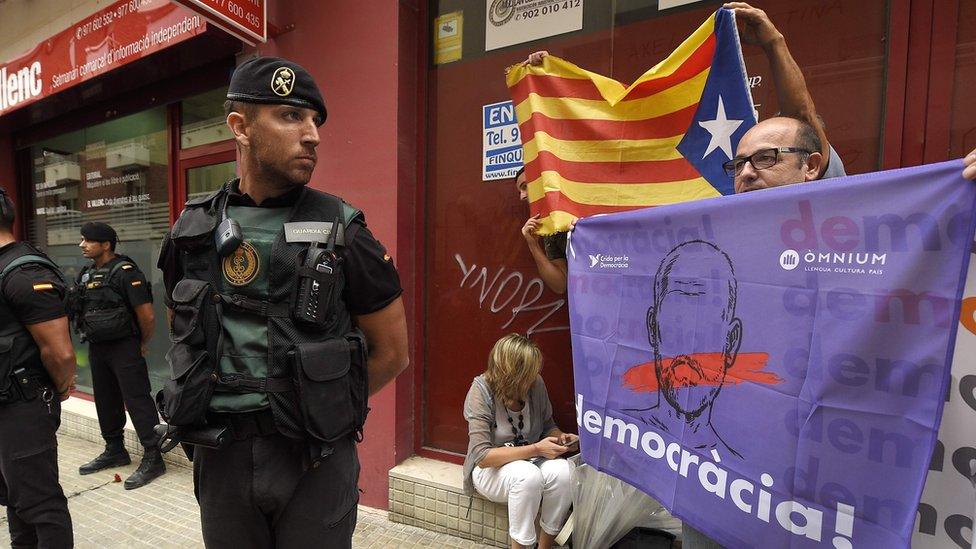Catalonia referendum: Spanish raid deals blow to vote
- Published
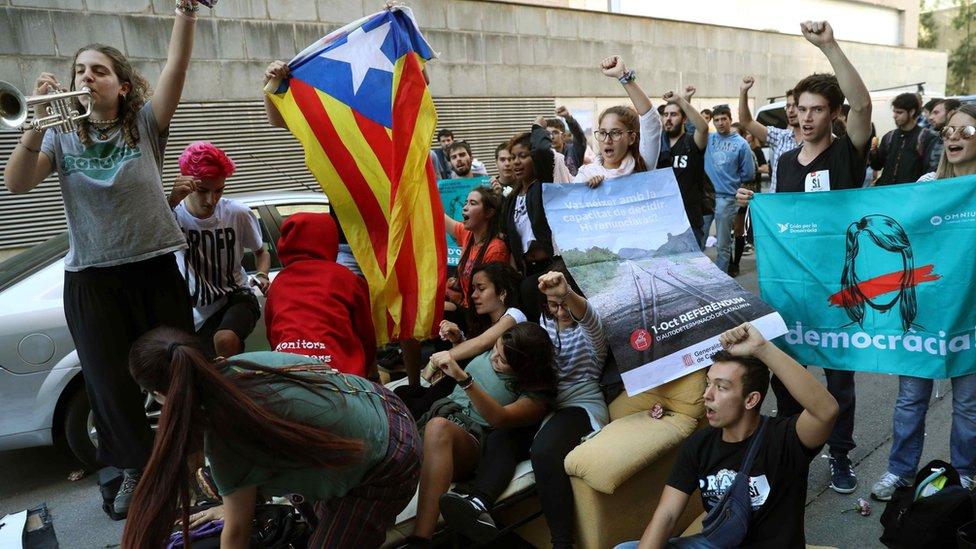
Protesters arrived at the Unipost offices in Terrassa during the day
Spanish police have discovered a mass of documents directly related to a banned Catalan independence referendum scheduled for 1 October.
Early on Tuesday, the Guardia Civil arrived at offices of Spain's biggest private delivery company, Unipost, in the Catalan city of Terrassa.
Catalan police officers scuffled with pro-secession protesters trying to block the street outside.
Catalan leaders are defying a court order to halt the vote.
They are trying to organise the referendum, despite a series of attempts by the national government to prevent it going ahead.
The Madrid government has been backed up by Spain's Constitutional Court, which suspended the referendum law passed by the Catalan parliament.
Some 7.5 million people live in Spain's well-off north-eastern region. Although opinion polls have been rare, one survey , externalcommissioned by the Catalan government in July suggested that 41% of voters backed independence while 49% were opposed.
Stacks of boxes of envelopes found
One of the most important aims for the national authorities is to stop voting cards being sent out in the first place.
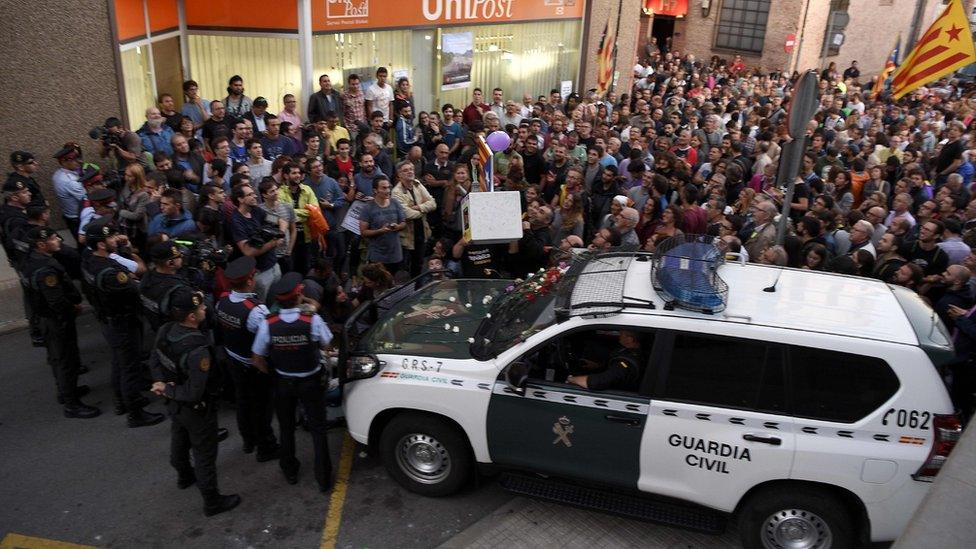
Some 200 people prevented a judicial secretary from getting through
As the police raid continued throughout the day in Terrassa, to the north-west of Barcelona, little was said about what had been seized. But it eventually became clear that they had succeeded in finding some of the most significant election material to date.
Among the documents were stacks of boxes containing hundreds of envelopes with the Catalan government's logo. The envelopes were suspected of containing voting cards.
In earlier raids, only posters and other promotional election literature had been found.
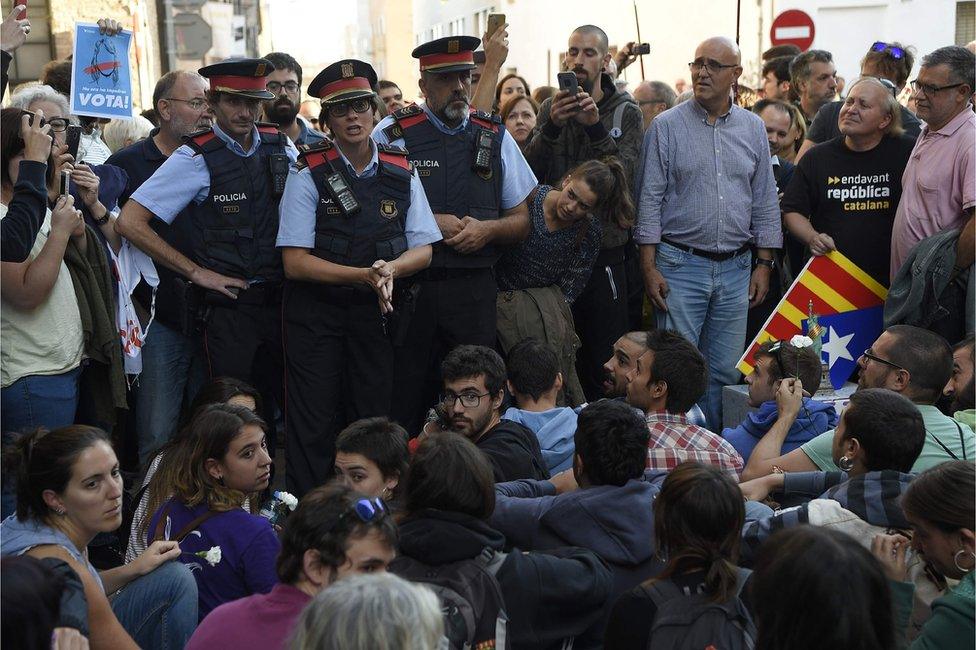
Police had tried to negotiate with the protesters
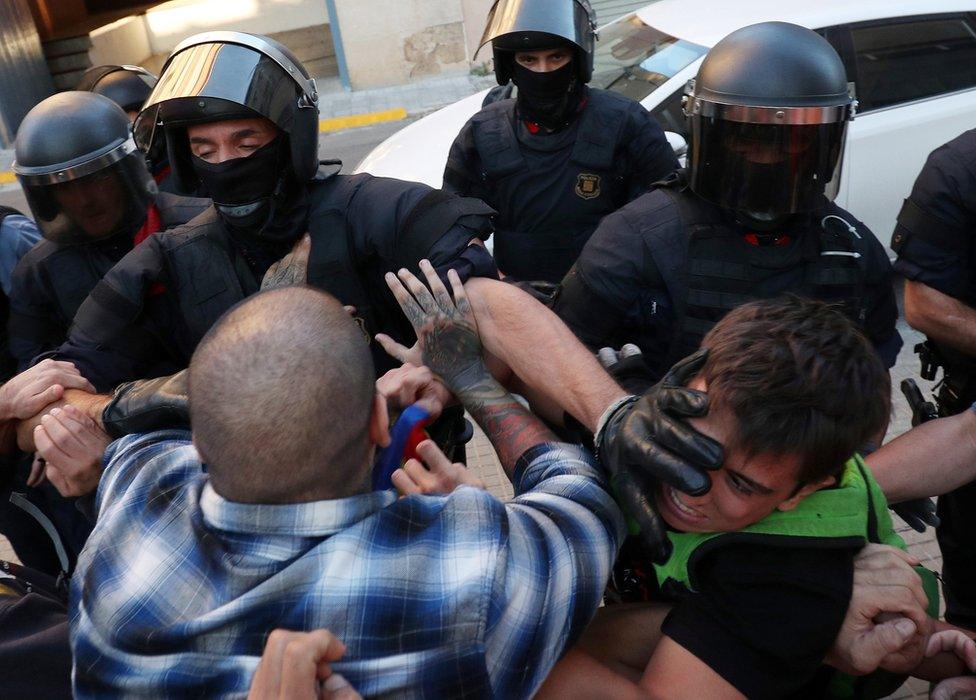
Scuffles broke out
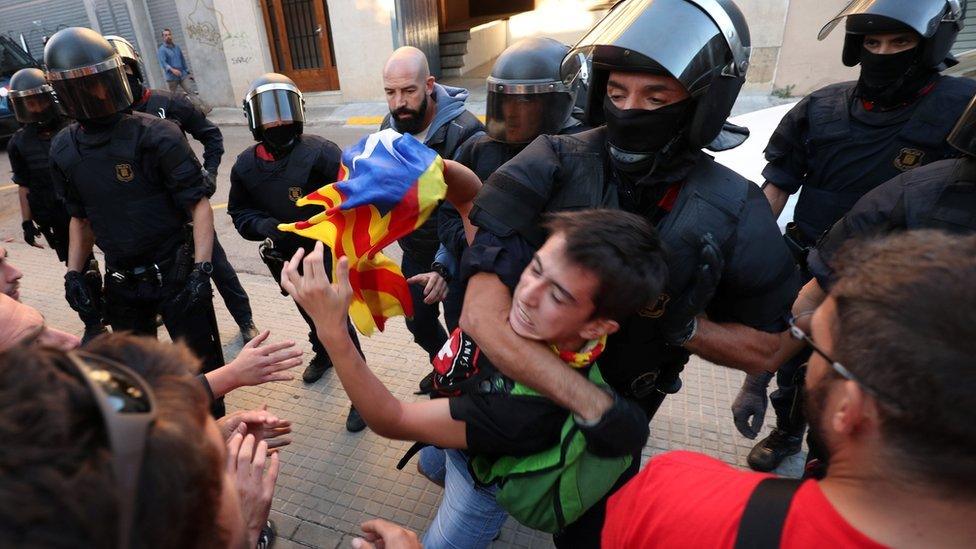
The protesters were finally removed
A local judge in Terrassa authorised police to seize the envelopes and open one to assess whether a company official may have been involved in "misappropriating public money" for the 1 October vote.
Up to 200 local people gathered outside the Unipost offices, placing flowers on police vehicles. For more than two hours they stopped a local judiciary official from entering the building. Catalan police eventually intervened to let the official through.
As the standoff went on, the mayors of three small Catalan towns appeared in court on suspicion of helping the vote take place.
Spanish prosecutors have opened an investigation into more than 700 local mayors who have backed the referendum. If voting does go ahead, it will take place in Catalonia's schools and municipal buildings.
The Spanish government has also moved to take control of the region's finances, in an attempt to stop public money being spent on the vote.
A deadline for the Catalan leadership to abandon the vote has run out, with Spain preparing to take over funding of most public services, including the payment of workers' salaries.
However, the vice-president of the Catalan government, Oriol Junqueras, went to the Supreme Court on Tuesday to appeal against the decision. Accusing the national government of irresponsible behaviour, he said he was confident the appeal would in effect suspend Madrid's move.
The Catalan administration had all the resources it needed to meet its obligations, he said.
- Published18 October 2019
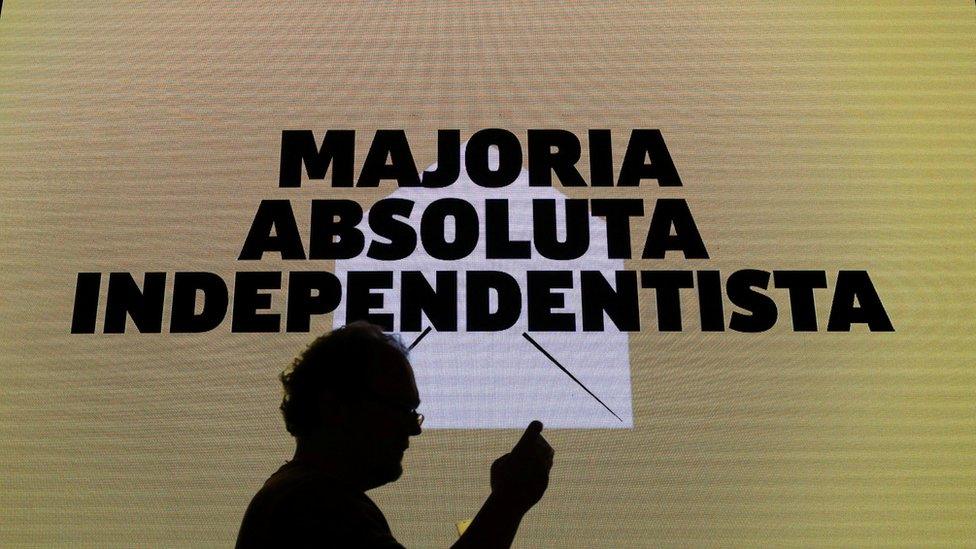
- Published15 September 2017
